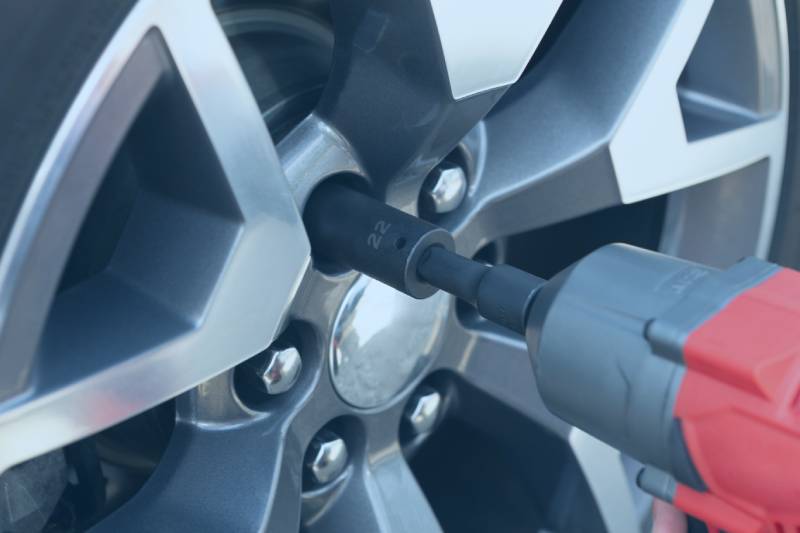In this article, we are going to discuss the Applications of Titanium in Automobile Manufacturing. A recent report by Fior Markets shows that the global titanium alloys market will grow to $6.87 billion by 2025 from $4.97 billion in 2017, according to the GlobeNewswire.
There is an increasing demand for titanium alloys from the automobile industry, especially in the sports and luxury car segments. Titanium is lightweight, meaning it can reduce vehicles’ weight when used to design different auto parts. It also has the potential to enhance efficiency in the internal combustion engine and reduce fuel consumption.
Titanium alloys feature other appealing qualities such as high strength tensile, low density, and anti-corrosion properties.
While this metal is suitable for manufacturing auto parts for all automobile models, it is expensive. That is why its application in the automotive industry is limited to the most exotic cars you can rent. So, how is this metal used in the automotive industry?
Table of Contents
Below are the Top 5 Applications of Titanium in Automobile Manufacturing
Engine Valves
Over the last few decades, automakers have committed to developing titanium engine valves for various reasons. Compared to steel, titanium valves reduce a car’s weight by 30% to 40%. Besides, the low pressure they present extends the life of the valve springs and makes their work in the valve train easier. Valves made from titanium increase the engine’s speed limit by about 20%. They also help to spin the motor at higher revolutions per minute.
Another benefit associated with titanium is a higher strength ratio to density and natural corrosion resistance properties. So, titanium valves don’t wear and tear or rust faster like those made of steel.
Engine Connecting Rod
Titanium connecting rods are essential because they combat high-stress factors and meet the need for high performance in racing cars. They create a connection with the crack and piston in the internal combustion engine. This connection transforms the linear movement powered by the piston into a rotating motion. The rotation motion is then transferred to the wheels to provide a smooth ride.
Connecting rods made from titanium alloy also resist the load generated by the piston’s rotation in the cylinder. As a result, the engine speed increases, and fuel consumption decreases. When these rods function efficiently, they help reduce the rate of carbon emitted from cars.
Exhaust Pipe
There are many benefits linked to the titanium exhaust system installed in different vehicles. Unlike steel, exhaust tubing designed from titanium metal guarantees high quality in terms of performance. Given that the titanium exhaust system is 40% lighter than steel, it requires less effort to install. Additionally, titanium exhausts are durable, meaning they can withstand adverse conditions, including heat of up to 900 degrees Fahrenheit.
In addition to strength, titanium tubing is less susceptible to rust and corrosion. It also enhances the sound of the engine and the overall aesthetics of your vehicle. With quality titanium exhaust systems fitted in the car, drivers enjoy a seamless driving experience. This is because titanium tubing is lightweight, so acceleration requires little effort.
Titanium Springs
Coil springs play a vital role in absorbing energy. That is why they are ideal devices in a vehicle. They also support a vast amount of weight and provide cars with smooth rides.
Automakers prefer coil springs made of titanium when it comes to weight. Because titanium springs are 70% lighter than steel, they reduce the automobile’s weight, optimize space, and save energy while improving performance.
Additionally, these characteristics make titanium more springy, meaning designers can minimize the spring height to reduce weight and save space without compromising quality performance.
The low density and weight enable titanium springs to accelerate and decelerate with minimal effort. Likewise, lower energy and mass requirements prevent the springs from surging. As a result, drivers enjoy smooth and well-controlled rides even when transporting heavy loads.
Body Frame
Aside from making durable auto parts, manufacturers view titanium as a perfect option for body frames. Titanium’s application on body frames can improve car safety considerably due to its toughness.
To demonstrate the metal’s appealing effects as a body frame, Icona, an Italian design house, designed a titanium-bodied luxury car. To Create Durable Body Frames nowadays, Japanese automakers are using pure titanium welded tubing.
With the low density, lightweight, anti-corrosion, and high strength properties, titanium can boost vehicle performance when used to design the body frame.
Titanium is Best fit for manufacturing auto parts like engine valves, turbochargers, valve spring seats, coil springs, connecting rods, etc.
Thanks to the low density and weight, anti-corrosion, and heat resistant properties it features, it improves engine efficiency and fuel consumption. However, titanium is expensive due to the complicated mining and production process. For this reason, carmakers often tend to use titanium in luxury and sports vehicles only.
Please share this Article with your friends and colleague to know more information about Applications of Titanium in Automobile Manufacturing




